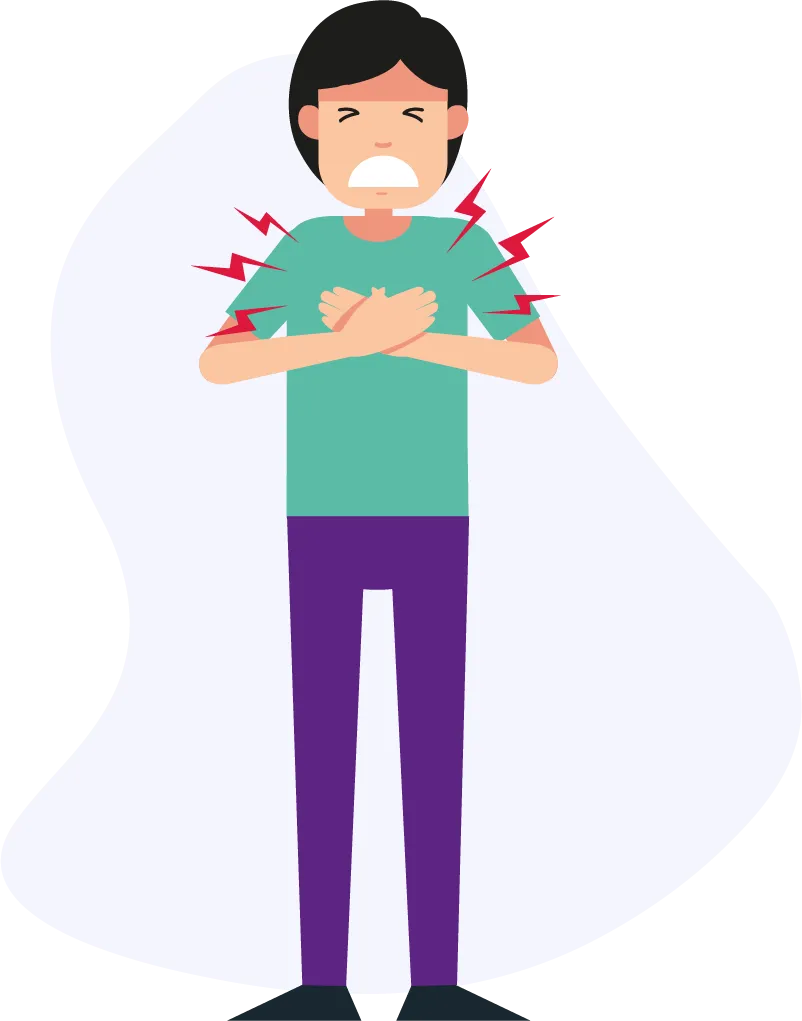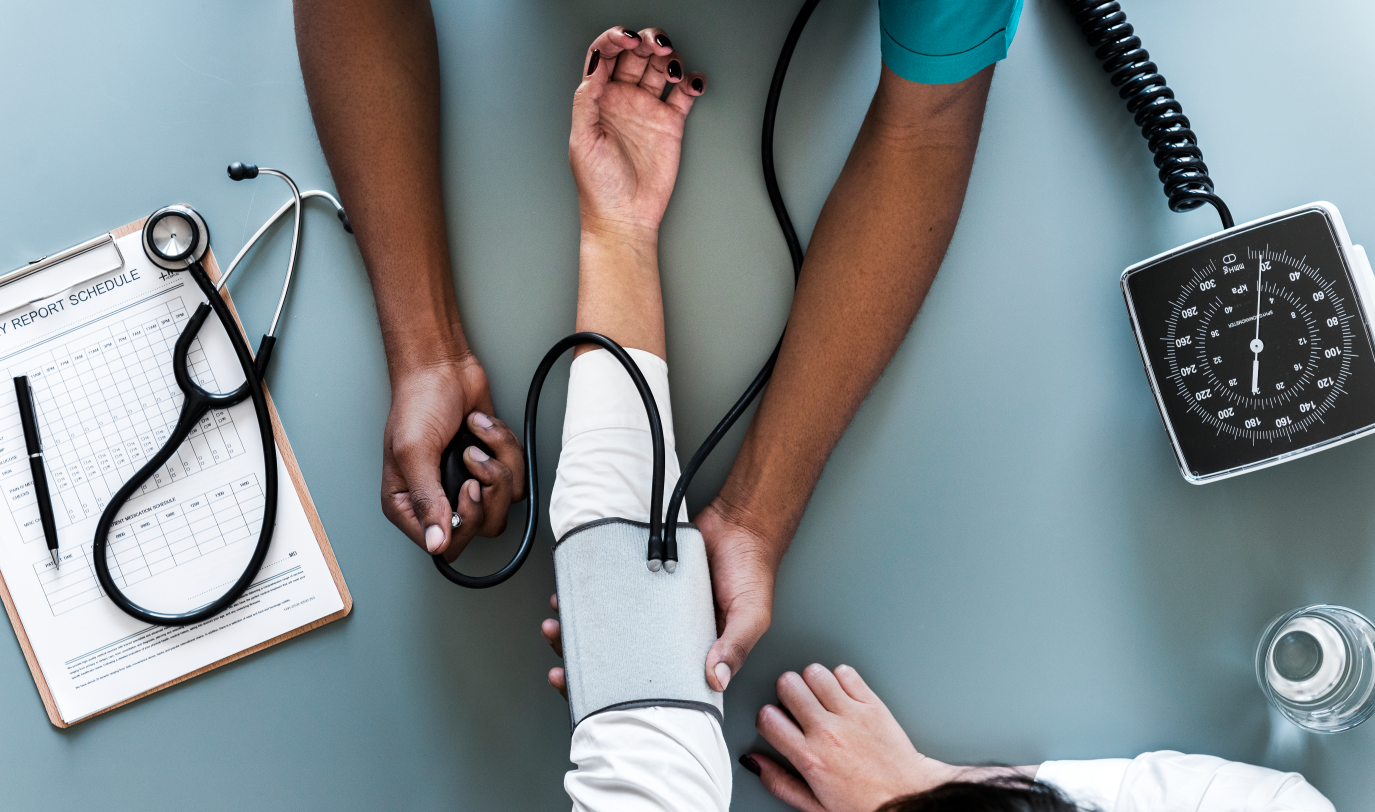Hypertension | 6 min read
All You need to Know about Hypertension Causes and Treatment
Medically reviewed by
Table of Content
Key Takeaways
- complications due to hypertension can be fatal as they can result in a stroke, blood clots and even heart failure
- Besides foods high in sodium, there are other known causes for hypertension
- Keeping your blood pressure in control enables you to live healthier for longer
Better known as the silent killer, hypertension is among a handful of health conditions with almost no obvious symptoms. In fact, the prevalence of hypertension in quite high amongst Indians and a study found that more than 50% were unaware of the diagnosis.
To add to that, the complications that arise due to hypertension can be fatal as they can result in a stroke, blood clots and even heart failure. For this reason, maintaining normal blood pressure is something you should work toward, even if you don’t have abnormal pressure at present.
To better understand the importance of optimal blood pressure control, here’s all you need to know about hypertension.
Causes of high blood pressure
There are many risks of developing high blood pressure and many of these are likely to be the underlying cause. For instance, the older you are, the more likely you are to experience hypertension as the blood vessels become a lot less flexible. Similarly, genetic factors, ethnicity and high cholesterol also put you at risk of having hypertension.
There are also several known causes of high blood pressure. For instance, those with obstructive sleep apnea are linked to having hypertension as well. With this disorder, there is an involuntary pause in breathing due to a blocked airway. Another known cause is an unhealthy diet. Foods that are high in sodium and unsaturated fat content are likely to cause high blood pressure.
Besides these, the other known causes for hypertension are:
- Diabetes
- Hyperthyroidism
- Kidney disease
- Pregnancy
- Lupus
- Congenital conditions
- Pheochromocytoma
Irregular blood pressure symptoms
Knowing how to differentiate between the symptoms of low blood pressure and those of hypertension is important to treating the problem. With low blood pressure, you’re likely to feel dehydrated, cold, depressed, lightheaded, and suffer from lack of concentration. However, the symptoms of high blood pressure are quite different, and indicate severity if they become noticeable. This is because hypertension doesn’t always present obvious symptoms and when it does, it usually requires immediate medical care.
Common symptoms of high blood pressure to watch out for are:
- Headaches: These occur on both sides of the head and is because high blood pressure affects the blood-brain barrier. As the pressure increases, blood leaks from the vessels to the organ, which causes swelling or an edema. With no space for the brain to expand, you feel pain, which can be accompanied by other symptoms as well.
- Chest pain: Also known as pulmonary hypertension, this occurs due to increased pressure in the arteries carrying blood to the lungs. This causes pain in the chest.
- Dizziness: Dizziness is another symptom of an edema brought on by high blood pressure.
- Blood in the urine: This is a symptom of renal hypertension, which is caused by the narrowing of the arteries that transport blood to the kidneys.
- Shortness of breath: Another symptom of pulmonary hypertension, only this time it includes the blood vessels of the heart and lungs. Here, the right side of the heart struggles to transport fresh, oxygenated blood through the lungs and to the left side owing to the increased pressure.

Treatment for hypertension
There are two types of hypertension that you may be diagnosed with, both of which have different treatments. The first is primary hypertension, which means that there is no underlying cause for the condition. Here, the elevated blood pressure is caused simply due to lifestyle choices or environmental factors. In such cases, you may be advised to try home remedies to revert to a normal blood pressure while being prescribed some medication to regulate pressure.
On the other hand, if the cause of your hypertension is known and due to a specific condition, then the treatment focuses on addressing the condition. This is called secondary hypertension and the common route is to prescribe medication. To help you understand why and how they work, here is a detailed breakdown of common medications prescribed to treat hypertension.
- Beta-blockers
These medications slow down heartbeat and the force with which it beats. Additionally, they also supress hormones that can raise your blood pressure. As a result, there is less blood being pumped in your arteries and at a lower pressure.
- Calcium channel blockers
These medications relax blood vessels and block some calcium from entering the muscles of the heart. This leads to less forceful heartbeats, which in turn lessens blood pressure.
- Diuretics
High amounts of sodium in the bloodstream is known to cause hypertension and diuretics help your kidneys rid your body of this excess. As a sodium leaves, blood pressure begins to stabilise and regulate itself.
Home remedies to maintain normal blood pressure
For primary hypertension, home remedies in conjunction with medication can work wonders. Some of the best approaches are as follows.
- Exercising
Being obese or overweight does contribute to hypertension. This is because the heart has to work harder to pump blood. So, reducing your weight helps and exercise is a good way to do so. Moreover, exercise strengthens your cardiovascular muscles and helps reduce stress. As a result, experts recommend that you get at least 30 minutes of physical activity daily.
- Managing your stress better
Reducing your stress is important to reducing blood pressure. The best practices here may be to meditate, get a massage, do yoga, do deep breathing, or partake in muscle relaxation therapy. You can also choose other stress-relieving activities to suit your lifestyle and habits such as adult colouring, trekking, therapy and more.

Keeping your blood pressure in control as best you can is definitely worth doing as it enables you to live healthier for longer. However, hypertension can also be hereditary, meaning you could be susceptible to it even if you’re actively trying to avoid it. In such cases, getting treatment for it early is your best bet. Watch out for the common symptoms of high blood pressure to do so at the earliest.
In case of any doubts, you can find, book & consult a medical professional from the comfort of your home, on Bajaj Finserv Health. View doctors’ years of experience, consulting hours, fees and more before booking an e-consult or in-person appointment. Apart from facilitating appointment booking, Bajaj Finserv Health also offers health plans for your family, medicine reminders, healthcare information and discounts from select hospitals and clinics.
References
- https://www.heart.org/en/health-topics/high-blood-pressure/why-high-blood-pressure-is-a-silent-killer
- https://timesofindia.indiatimes.com/india/as-hypertension-prevalence-rises-50-of-indians-are-unaware-of-diagnosis-study/articleshow/69316127.cms
- https://www.medicalnewstoday.com/articles/178633
- https://www.medicalnewstoday.com/articles/159283#genetic
- https://www.healthline.com/health/high-blood-pressure-hypertension#effects-of-high-blood-pressure
- https://www.medicalnewstoday.com/articles/322451#what-does-the-science-say
- https://www.mayoclinic.org/diseases-conditions/chest-pain/symptoms-causes/syc-20370838#:~:text=Pulmonary%20hypertension.,which%20can%20produce%20chest%20pain.
- https://www.webmd.com/hypertension-high-blood-pressure/guide/what-is-renal-hypertension#1
- https://healthblog.uofmhealth.org/heart-health/why-does-pulmonary-hypertension-cause-shortness-of-breath#:~:text=Pulmonary%20hypertension%20%E2%80%94%20or%20high%20blood,telltale%20sign%20of%20the%20condition.
- https://www.healthline.com/health/high-blood-pressure-hypertension#treating-hypertension
- https://www.medicalnewstoday.com/articles/150109
- https://www.healthline.com/health/high-blood-pressure-hypertension#bloodpressure-medication
- https://www.healthline.com/health/high-blood-pressure-hypertension#bloodpressure-medication
- https://www.healthline.com/health/high-blood-pressure-hypertension#bloodpressure-medication
- https://www.healthline.com/health/high-blood-pressure-hypertension#bloodpressure-medication
- https://www.medicalnewstoday.com/articles/159283#systolic
- https://www.healthline.com/health/high-blood-pressure-hypertension#healthy-diet,
Disclaimer
Please note that this article is solely meant for informational purposes and Bajaj Finserv Health Limited (“BFHL”) does not shoulder any responsibility of the views/advice/information expressed/given by the writer/reviewer/originator. This article should not be considered as a substitute for any medical advice, diagnosis or treatment. Always consult with your trusted physician/qualified healthcare professional to evaluate your medical condition. The above article has been reviewed by a qualified doctor and BFHL is not responsible for any damages for any information or services provided by any third party.



